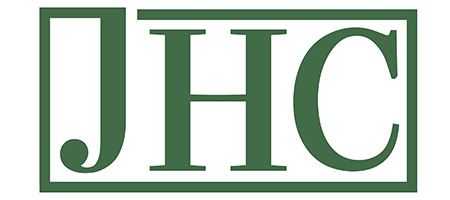Choosing the right business structure is one of the most critical decisions an entrepreneur can make. The structure you select affects everything from daily operations to taxes and personal liability. At Jennings & Hawley CPA, we understand that each business is unique, and our goal is to help you navigate the complexities of choosing the appropriate business structure. Below is a basic overview of the various types of business structures, highlighting their advantages and disadvantages to help you make an informed decision.

Sole Proprietorship
Overview:
A sole proprietorship is the simplest and most common form of business structure. It is owned and operated by one individual, and there is no legal distinction between the owner and the business.
Advantages:
Simplicity: Easy to establish and operate.
Control: Complete control over business decisions.
Tax Benefits: Profits are taxed as personal income, which can simplify tax filing.
Disadvantages:
Unlimited Liability: The owner is personally liable for all business debts and obligations.
Funding Challenges: Raising capital can be difficult since it depends on the owner’s personal creditworthiness.
Limited Continuity: The business does not continue if the owner retires, passes away, or decides to sell.
Partnership
Overview:
A partnership involves two or more people who agree to share the profits, losses, and responsibilities of running a business. There are several types of partnerships, including general partnerships, limited partnerships, and limited liability partnerships.
Advantages:
Shared Resources: Partners can pool resources and share responsibilities.
Simple Taxation: Profits are passed through to the partners’ personal tax returns.
Flexibility: Partnerships can be relatively easy to establish and manage.
Disadvantages:
Joint Liability: In a general partnership, all partners are personally liable for business debts and obligations.
Potential for Conflict: Disagreements between partners can disrupt business operations.
Complexity: Limited partnerships and limited liability partnerships require more formal agreements and filings.
Limited Liability Company (LLC)
Overview:
An LLC combines the liability protection of a corporation with the tax benefits and flexibility of a partnership. It is a popular choice for small and medium-sized businesses.
Advantages:
Limited Liability: Owners (called members) are not personally liable for business debts and liabilities.
Tax Flexibility: An LLC can choose to be taxed as a sole proprietorship, partnership, or corporation.
Operational Flexibility: Fewer compliance requirements than a corporation.
Disadvantages:
Complex Formation: More paperwork and formalities compared to a sole proprietorship or partnership.
Self-Employment Taxes: Members may be subject to self-employment taxes on their share of the profits.
Varying Regulations: LLC laws vary significantly by state, which can complicate operations if the business operates in multiple states.
Corporation
Overview:
A corporation is a legal entity separate from its owners (shareholders). It offers the strongest protection from personal liability but involves more regulations and complex tax requirements.
Advantages:
Limited Liability: Shareholders are not personally liable for business debts.
Raising Capital: Easier to raise funds through the sale of stock.
Perpetual Existence: The corporation continues to exist regardless of changes in ownership.
Disadvantages:
Complexity and Cost: More expensive to establish and maintain, with significant regulatory and administrative burdens.
Double Taxation: C-corporation profits are taxed at the corporate level and again as shareholder dividends.
Regulatory Requirements: Must adhere to more stringent compliance and disclosure requirements.
S Corporation
Overview:
An S corporation is a special type of corporation that allows profits to pass through to the shareholders’ personal tax returns, avoiding double taxation. It combines the benefits of a corporation with the tax benefits of a partnership.
Advantages:
Tax Benefits: Avoids double taxation, with income passing through to shareholders.
Limited Liability: Shareholders are protected from personal liability for business debts.
Attracting Investment: Easier to raise capital than sole proprietorships or partnerships.
Disadvantages:
Ownership Restrictions: Limited to 100 shareholders, all of whom must be U.S. citizens or residents.
Regulatory Complexity: Must adhere to strict compliance and administrative requirements.
Tax Qualification Obligations: Must meet specific IRS requirements to maintain S corporation status.
Cooperative
Overview:
A cooperative (co-op) is a business owned and operated for the benefit of those using its services. Members (users) are also the owners and share in the profits and decision-making process.
Advantages:
Member Control: Operated and controlled by its members, fostering democratic decision-making.
Profit Sharing: Profits are distributed among members based on their usage of the cooperative.
Tax Benefits: May receive favorable tax treatment.
Disadvantages:
Funding Challenges: Raising capital can be difficult since it relies on member contributions.
Decision-Making: Consensus decision-making can be time-consuming and challenging.
Complexity: Requires a detailed agreement and strong governance to function effectively.
Choosing the Right Structure
Selecting the appropriate business structure depends on various factors, including the nature of your business, your goals, the level of control you desire, tax considerations, and your tolerance for personal liability. Here at Jennings & Hawley CPA, we provide personalized advice to help you evaluate these factors and choose the structure that best aligns with your objectives.
How Jennings & Hawley CPA Can Help
Expert Consultation
Our experienced team will guide you through the pros and cons of each business structure, helping you understand the implications for your specific situation.
Customized Solutions
We tailor our advice to meet your unique needs, ensuring that the structure you choose supports your business goals and growth plans.
Ongoing Support
From initial setup to ongoing compliance and tax planning, we offer comprehensive support to ensure your business remains on solid ground.
Tax Planning and Compliance
We help you navigate the tax implications of your chosen structure, ensuring compliance with all relevant regulations and optimizing your tax position.
Call Today To Discuss Your Situation
Choosing the right business structure is a foundational step in building a successful business. At Jennings & Hawley CPA, we are dedicated to providing the guidance and expertise you need to make an informed decision. Contact us today to schedule a consultation and learn more about how we can assist you in structuring your business for success.
